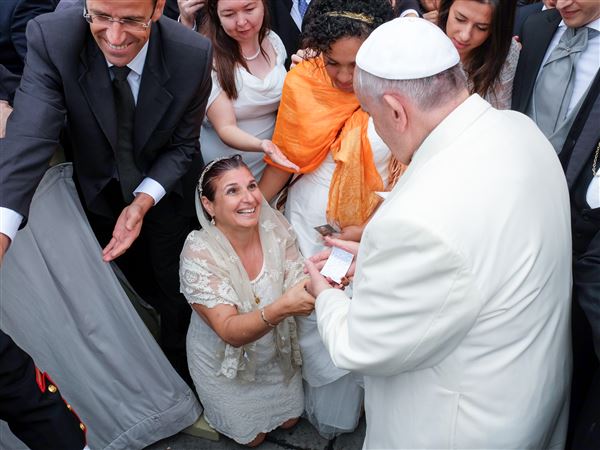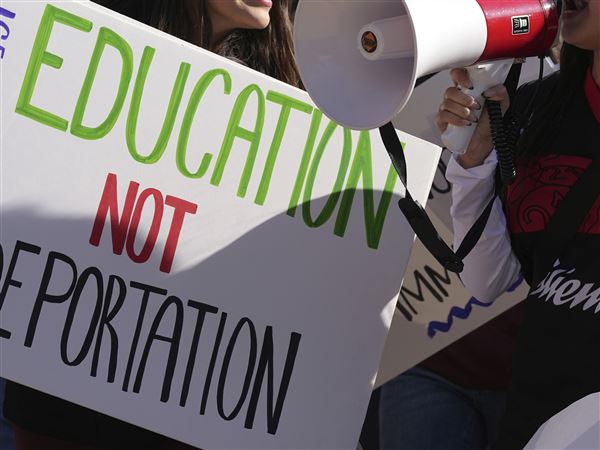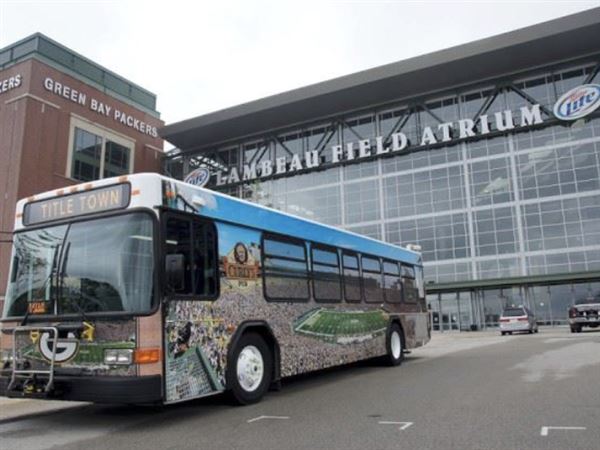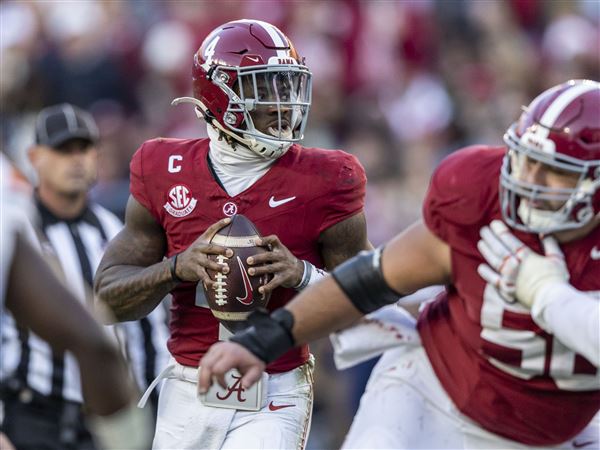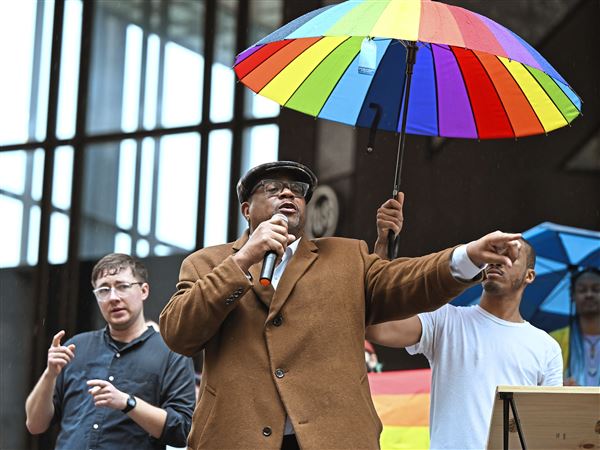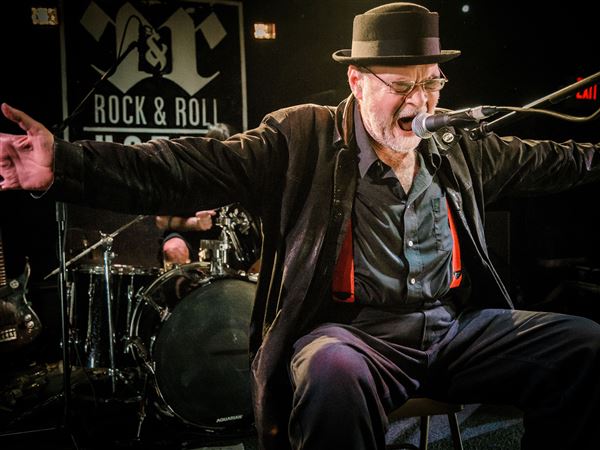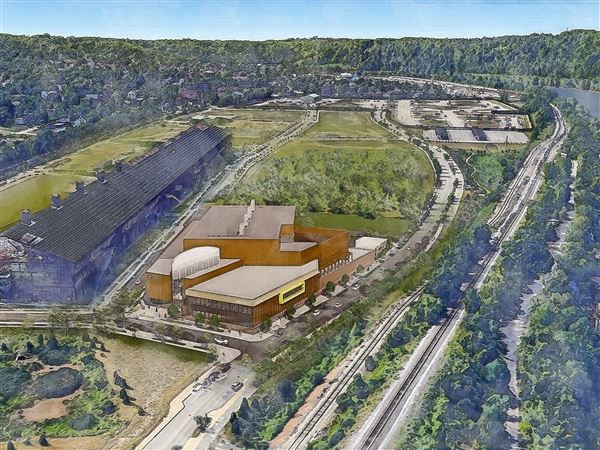
Alan Alda as Sen. Arnold Vinick and Jimmy Smits as Rep. Matt Santos are in a battle to see who will succeed Martin Sheen as President Josiah Bartlet on "The West Wing."
Click photo for larger image.
Live TV episodes have become more about creating a promotional, hype-filled opportunity to shine a light on a series than any particular grasp for new artistic heights. They're sometimes less contrived than others -- a live TV crew in the "ER"! -- other times not ("Will & Grace" was live for no discernible reason in September).
But the concept around the live episode of NBC's "The West Wing" last night made sense: If ever there was to be a live episode, a presidential debate at least lends itself to the format.
Nevertheless, much of last night's hour did feel like an eat-your-vegetables episode of "The West Wing." If you're a policy wonk, a political obsessive, the hour was a feast. But to those who tune in for the mix of political idealism and character drama, it began as a lopsided let down: Lots of boring back-and-forth, not much revealed about the characters.
The debate between fictional presidential candidates -- Republican Sen. Arnold Vinick (Alan Alda) and Democratic Rep. Matt Santos (Jimmy Smits) -- was full of big ideas, as Vinick convinced the moderator (real-life newsman Forrest Sawyer as himself) and Santos to forsake the agreed-upon debate rules for something more open and revealing.
Written by Lawrence O'Donnell Jr. and directed by Alex Graves, executive producers of the series, the script had Santos and Vinick arguing over how to deal with illegal immigration, tax cuts, ways to improve education, the same issues that we hear about every four years. Every now and then, perhaps in an attempt to draw back viewers who got bored and started reading a magazine, a bit of drama was added (a heckler here, the audience booing there).
But it wasn't until the second half of the hour that the debate got interesting and the two candidates posed what were, if not new arguments, certainly not mainstream political talking points.
Vinick suggested no one but the rich visit the Arctic Wildlife Refuge, making it an OK place to drill for oil; he also offered a thought-provoking argument that high-cost prescription drugs are still less expensive than the surgery that used to be required to treat ailments that drugs can now cure.
Santos defended the term "liberal," reminding Vinick it was a liberal Republican, Abraham Lincoln, who is credited with ending slavery, and he wondered what happened to the Republican Party that it no longer will entertain the idea of liberal Republicans.
"When you try to hurl that label at my feet as if it's something to run away from, I will pick up that label and wear it as a badge of honor," Santos said.
In those moments, the live "West Wing" was electric, but it took a while to get there.
As to the live element, it didn't really add much. The episode could have been stronger, better produced and with a less dull first half, if it had been filmed in advance as usual. The hour was scripted, so it's not like the actors were really debating. They had been prepped on their positions in addition to the script, but even the possibly spontaneous moments might not have been. (Did Alda really forget to shake Smits' hand at the outset or was it scripted that he forgot?)
Another thing the episode did was confuse its fictional "West Wing" universe with the real world. Using the NBC News "Live" logo in the lower left corner of the screen was certainly questionable. (Does the network really want to use its news division's icon in the service of realism on a TV drama?) But more baffling was the decision to allow real-world references into the fictional universe of "The West Wing," which, aside from the critically-panned post-9/11 episode, has always taken pains to be a little bit removed from the America of former President Bill Clinton and President George H.W. Bush. But there were references to real-world politics, including the high price of gas and the Republican governor of Illinois' suspension of executions of criminals, which made the debate more about the real issues that divide America than about the characters in the show.
As a stickler for continuity, I'd rather see the series deal with issues that face the real world in a way that didn't step outside the textured world "The West Wing" has built since its inception.
I'm not sure I have a strong sense of which fictional candidate won this debate. Underdog Santos probably did better than viewers expected, but I've always been partial to Vinick, simply because for dramatic purposes installing a moderate Republican president offers more new story possibilities for the show going forward. But demographically, NBC will want Santos to win because Smits is considerably younger than Alda. Either way, it probably won't matter. Given the show's disappointing Sunday night ratings, chances are it won't return after this season.
So I guess the real winner was television and, by extension, viewers. Real-life issues were brought to a prime-time national audience by two smart characters that were more familiar with these issues than some real-life candidates appear to be. And they explored these issues in greater depth and with intelligent arguments on both sides, so different from what Americans saw in the last real-life presidential election debates. Once again, "The West Wing" proved itself to be an idealized political fantasy land.
First Published: November 7, 2005, 5:00 a.m.
